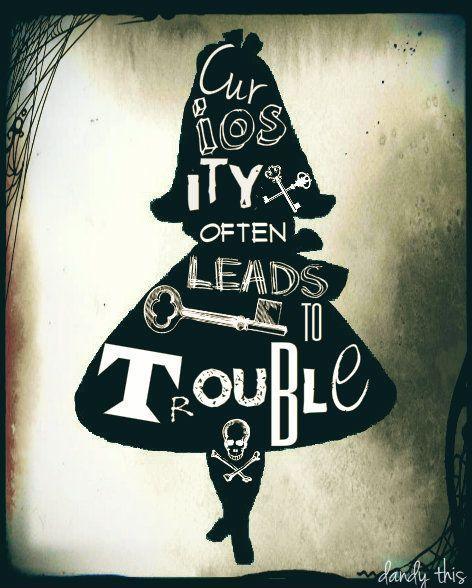Curiosity often leads to trouble


Curiosity often leads to trouble
Curiosity is a natural human trait that drives us to explore, learn, and discover new things. It is what pushes us to ask questions, seek answers, and expand our knowledge. However, as the saying goes, "curiosity often leads to trouble." This is because curiosity can sometimes lead us into dangerous or risky situations, where we may find ourselves in trouble or facing consequences that we did not anticipate.One of the main reasons why curiosity can lead to trouble is because it can cause us to disregard warnings or boundaries that are in place for our safety. For example, a curious child may ignore a "do not touch" sign and end up getting hurt by touching a hot stove. Similarly, a curious hiker may venture off the designated trail to explore a remote area, only to get lost and require rescue. In these situations, curiosity can lead to trouble because it blinds us to the potential risks and dangers that we may encounter.
Another way in which curiosity can lead to trouble is by causing us to invade others' privacy or cross ethical boundaries. For example, a curious individual may snoop through someone else's personal belongings out of curiosity, only to discover information that was meant to be private. This can lead to strained relationships, trust issues, and even legal consequences. Curiosity can also lead us to eavesdrop on conversations, stalk social media profiles, or engage in other intrusive behaviors that can have negative repercussions.
Furthermore, curiosity can lead to trouble when it drives us to seek out forbidden or taboo knowledge. For example, a curious teenager may experiment with drugs or alcohol to satisfy their curiosity about their effects, only to become addicted or suffer serious health consequences. Similarly, a curious individual may explore dangerous or illegal activities out of a desire to satisfy their curiosity, leading to legal trouble or harm to themselves or others.












 Friendship Quotes
Friendship Quotes Love Quotes
Love Quotes Life Quotes
Life Quotes Funny Quotes
Funny Quotes Motivational Quotes
Motivational Quotes Inspirational Quotes
Inspirational Quotes